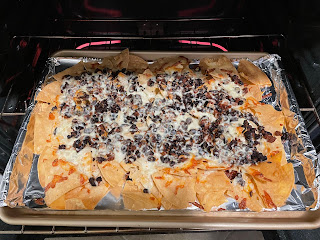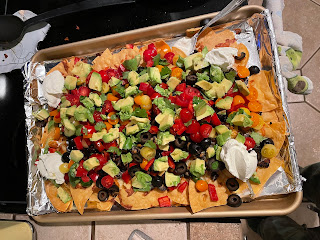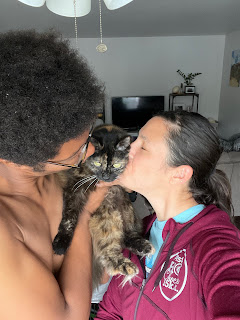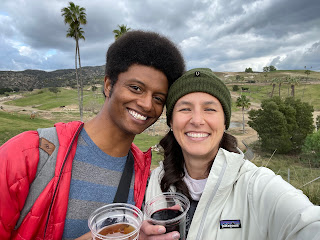Strangers like to tell me how lucky I am. They say it at events, out of earshot of anyone else, when they learn I am my husband’s wife. These strangers are always women, and are not strangers to my husband. They also often fawn over me, as if we’re besties, even though we just met. Even men insinuate my luckiness: one man told me to “take good care of him”.
What am I supposed to say in response? I default to “yes, I am lucky” and hope they drop it.
I’ve never understood their meaning. What makes me so lucky? Is it that I’m married to my husband, who they presumably think is just the best? Are they envious, secretly hoping he’ll be back on the market? Or is it simply that I have a husband, because being a single woman is the worst at this age (and perhaps a little also that my husband is not an asshole)? Or could some of them be hoping for gossip? How would they react if I told them his farts don’t smell like roses? It makes me uncomfortable.
No one tells my husband, or any man, that he’s so lucky. If anyone pays my husband a compliment about me it’s regarding my looks. But even still, he’s not lucky to have a pretty wife, since he's too attractive himself to have an unattractive wife. It’s expected. Of course she’s beautiful.
My husband hears how great he is in some capacity every day. His clients rave about his work, colleagues he mentors look up to him, his former boss has told him (indirectly, but still) he’s a better photographer, even the little kids we know talk about him to their parents. He makes an impression and there’s no one who doesn’t love him. But he rarely hears from me how great he is.
Instead, I keep the domestic sphere going to he can devote himself to his craft. I make sure the animals are cared for, supplies stocked, and entertain them (including bonding a new rabbit, which I said I’d never do again). Lately I’ve cooked dinner, ate alone, and cleaned up, making sure he has dinner waiting for him after a late shoot. The last two months I’ve spent a whole day off deep cleaning alone, and always during the week do the smaller tasks, like run the roomba and wash the sheets and towels.
Maybe it’s just because those are the expected tasks for a wife, even in whatever this day and age is (where quite a few people would love to have us go back to traditional gender roles). Maybe it’s because I work from home and can wash some dishes on a break or vacuum while listening to a meeting. Maybe it’s because I care more about a clean and well-kept home than my husband, so it makes sense that I spend more of my energies that way.
It’s a lonely life, though. But I don't think the people who tell me I’m so lucky would like to hear that. Shouldn’t a little loneliness be worth the sacrifice to be married to such greatness? Shouldn't I be eagerly awaiting his arrival at night, happy I'm the one he comes home to?
My husband doesn’t know people say this to me. All he knows is that everyone except his wife tells him he’s wonderful. I know it frustrates him because he says things loud enough for me to hear. Like how he knows not to expect support from me (said in reference to fantasy football, which I started doing to spend more time with him, but the wording was “in anything ever”). Or when I didn’t know what I wanted to eat and he muttered I never do (despite him also not having an answer). Or when I brought up that something (can’t even remember what) upset me and he said it’s always something.
I’ve thought what our relationship might be like if we shifted to traditional gender roles. We don’t have kids so it would never fly, plus we couldn’t afford to live here without my income. But if I wasn’t working full time of course I’d take complete care of the home. The grocery shopping, the cleaning, the cooking, the animals, arranging our social life and travel, all of it would be done without him lifting a finger, me being mad that the workload is unequally distributed, and might even mean I have more energy and desire for intimacy.
Or, more likely, our relationship would implode. If I already feel worth less despite all I contribute, how worthless would I feel if I contributed nothing financially? I’d need to be medicated, and then I’d really be a stereotype. On his end, he would be working more than ever to support two people and we likely wouldn’t see each other any more than we do now with opposite schedules.
If I wanted that life, I could have had it. My high school boyfriend’s plan was to be a lawyer, or some other super high paying career, where he would work long hours so I could have the luxury of staying home to raise our kids (in his plan, we’d have two). He said this to me in a sad, determined kind of way. This was his sacrifice.
I rejected that life immediately. Even then, when I assumed I’d have kids because it’s what you do after getting married, being a stay at home mom was not for me. Further, why would I go into a marriage knowing my husband was going to be working all the time and we’d rarely see each other? I wanted to get married because I loved my spouse and wanted to spend time with him. Marriage was never a means to an end for me. Yet he wasn’t the last boyfriend to pitch this life to me.
Of course, that life required having kids. When I got married—to someone who also didn’t want kids and valued an equal partnership—I was excited about creating a different kind of life. Having the flexibility to move around, live in other cities and countries. Travel where and when we want, not when school schedules dictate. Taking the fulfilling job even if it didn’t pay that well.
But so far we haven’t done this. Husband says someday, even soon. I have doubts. Looking back on our 11 years together there’s always been something: stress and unhappiness with jobs that underpaid and overworked, grad school, sick pets, planning and paying for a wedding, not working for 5 months and then taking every job possible in case the pandemic gets worse.
Work will always take priority for my husband. It took me a long time to realize that, longer than it should have. I’ll still be disappointed but I no longer expect him to block off time if there's even a chance he could book work. I can count on my birthday, his birthday, and our wedding anniversary. Even this year, for his 40th, he took the day of off but worked the following day.
It’s time for me to get used to the idea that I’ll need to do more things on my own. Which honestly should be my ideal, because I enjoy my alone time and enjoy traveling solo. If he can swing a day or two of a trip, like he did last year when I went to Seattle for a week, great. I married him because I love him and want to spend more time together, but I’m not doing our relationship any favors by waiting around for him to block off potential work time.
So, yeah, it’s been lonely. I have some loose plans for the next couple of years that involve short trips to see friends, focusing on my old and at-risk pets, and doing some volunteering and possibly freelancing to stay busy and earn extra income. I’m starting to form a longer-term plan, too, which is dependent on that extra income. Maybe having something to look forward to that’s all for me will help.
In the meantime, people should stop telling others how lucky they are. The grass is always greener, and I’m worried one of these times I’ll tell some unsuspecting woman the reality of living with greatness.


















